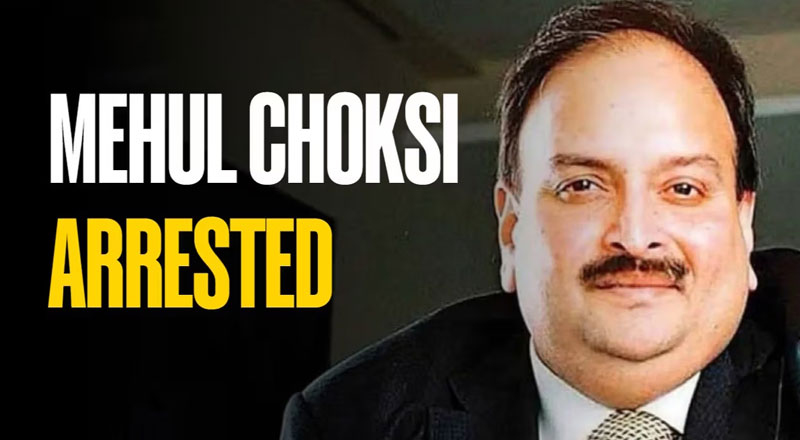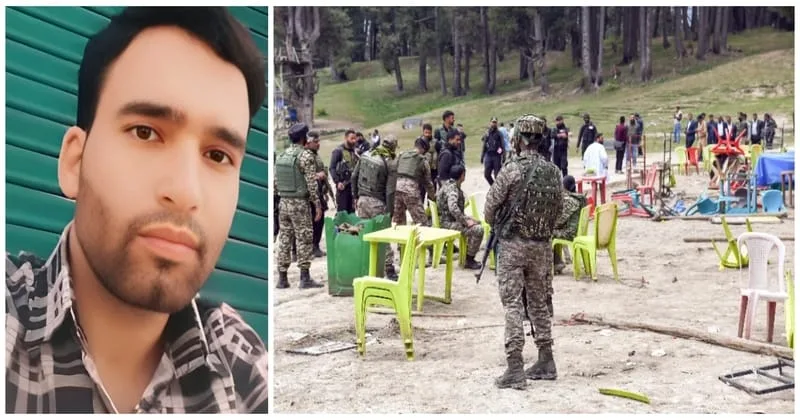A Scam That Shook India’s Banking System
In 2018, India was jolted by one of the most significant financial frauds in its banking history. The Punjab National Bank (PNB), the country’s second-largest public sector bank, reported a staggering scam involving fraudulent Letters of Undertaking (LoUs) and Foreign Letters of Credit (FLCs) amounting to over ₹13,500 crore. At the heart of the scandal were fugitive diamond merchants Mehul Choksi and his nephew Nirav Modi.
Mehul Choksi, the owner of Gitanjali Gems, was accused of masterminding a large chunk of the fraud—estimated at ₹6,095 crore—by colluding with corrupt bank officials to siphon off huge sums. While Nirav Modi fled to the UK, Choksi took citizenship in Antigua and Barbuda before disappearing from public view. Despite Interpol notices and multiple court proceedings, the Indian government’s efforts to extradite him faced repeated hurdles—until now.
Arrested in Belgium on India’s Request
On Saturday, 65-year-old Mehul Choksi was arrested in Belgium, where he was reportedly undergoing medical treatment. According to sources in the Central Bureau of Investigation (CBI), his arrest came in response to two open-ended non-bailable warrants issued by a Mumbai court, dated May 23, 2018, and June 15, 2021.
Choksi’s presence in Belgium was confirmed in March 2025 by the country’s foreign ministry, which stated it was closely monitoring the case. He had been residing in Antwerp with his wife, Preeti Choksi, a Belgian citizen, after acquiring a local residency card. Official reports suggest that Choksi had left Antigua—where he had acquired citizenship—to pursue cancer treatment in Europe and was possibly considering relocating to Switzerland.
The Modus Operandi of the PNB Scam
The PNB fraud involved the unauthorized issuance of LoUs and FLCs from the bank’s Brady House branch in Mumbai. Choksi and his firms allegedly bribed bank officials to generate these instruments, which were then used to obtain foreign credit without proper collateral. The transactions were neither recorded in the bank’s core systems nor backed by genuine trade, allowing the fraud to go undetected for years.
Once the scam came to light in early 2018, both Choksi and Modi had already fled India. The PNB registered a criminal complaint against them, triggering investigations by the CBI and the Enforcement Directorate (ED). The scandal sparked a national uproar, and in the years since, Indian authorities have confiscated and sold assets worth over ₹2,500 crore in an attempt to recover public funds.
Legal Challenges Ahead for Extradition
Although his arrest is a major breakthrough, bringing Choksi back to India is far from guaranteed. Legal experts anticipate a prolonged extradition battle in Belgian courts. Choksi is expected to seek immediate bail, citing poor health, and may invoke his past allegations of being “abducted” by Indian agents in Antigua as a reason to resist deportation.
Indian authorities remain cautiously optimistic. While the extradition route may face delays, deportation is also being explored as a viable alternative. Officials hope that, even if granted bail, Choksi will not be permitted to return to Antigua.
Meanwhile, Nirav Modi remains incarcerated in London, where he too is contesting India’s extradition request. Together, their cases represent a test of international cooperation in prosecuting white-collar crime across borders.
The Road Ahead
Mehul Choksi’s arrest in Belgium marks a turning point in India’s long pursuit of justice in the ₹13,500 crore PNB scam. However, the road to extradition is expected to be strewn with legal resistance, health-related appeals, and diplomatic hurdles. Indian agencies, buoyed by this development, are preparing for a protracted legal battle to ensure Choksi stands trial in India. If successful, it would not only deliver justice in one of India’s biggest banking frauds but also send a strong message about the reach of the Indian legal system in tackling economic fugitives abroad.
(With inputs from agencies)





